September, unfortunately, means that summer is quickly drawing to a close and the weather is starting to become a bit more British. As the summer ends and the seasons start to change, the gardening chores start to become more and more important. September is the month when you have to prepare your garden for the up-and-coming colder seasons.
Before starting your September jobs it is hugely important to make sure that you have done all of the necessary jobs from the previous month (August Gardening Jobs) to ensure that your garden is fully up to date and ready for the next month.
1 – Prepare lawn for seasonal changes
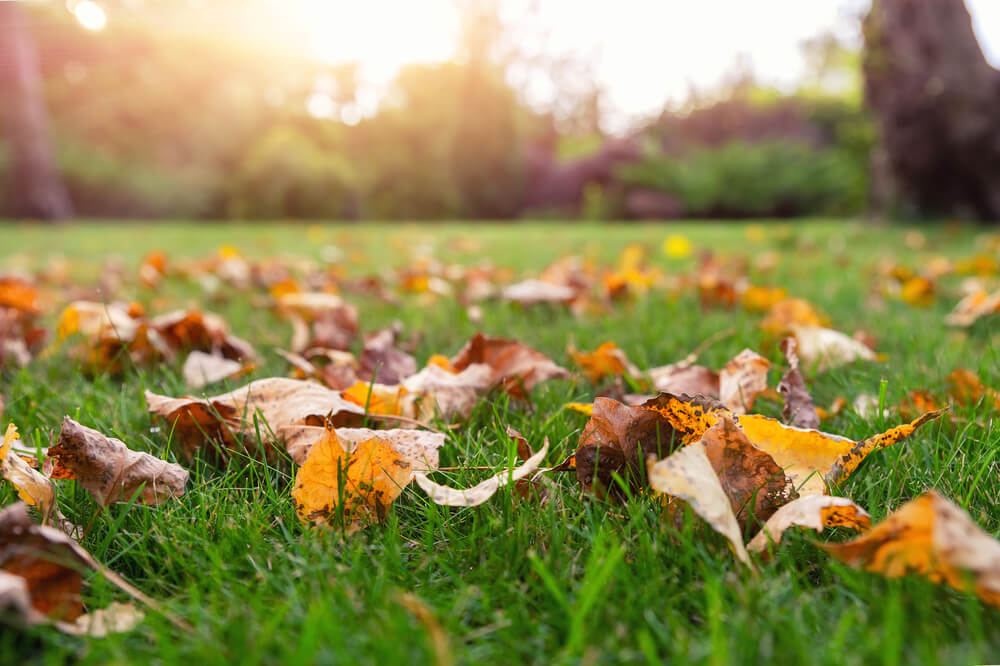
One thing that we always stick by is that a lawn is one of the main focal points of a garden. It’s the area in which you spend the most time while you are outside. However, with summer coming to a close, the opportunities to sit in the sun on your lawn will become few and far between. Therefore it is less important to keep on top of the lawn aesthetic and much more important to prep your lawn for the seasonal changes and all of the weather conditions that come with that.
The preparation of your lawn can be quite difficult, however, it will mean that your lawn stays healthy throughout the winter months and therefore leaving you with less work to do come spring and summer next year. The jobs that you need to think about are aerating, scarifying, fertilising and over-seeding the lawn. This will ensure that your lawn is looking stunning and healthy for the following spring.
You should also both trim and cut your lawn for the last time. It is important to leave the grass slightly longer over the winter months so that your lawn can obtain as much food as possible. Cutting your lawn too short can cut off the grass leaves which are the main food providers to our lawn.
2 – Continue to deadhead flowers that are beginning to fade
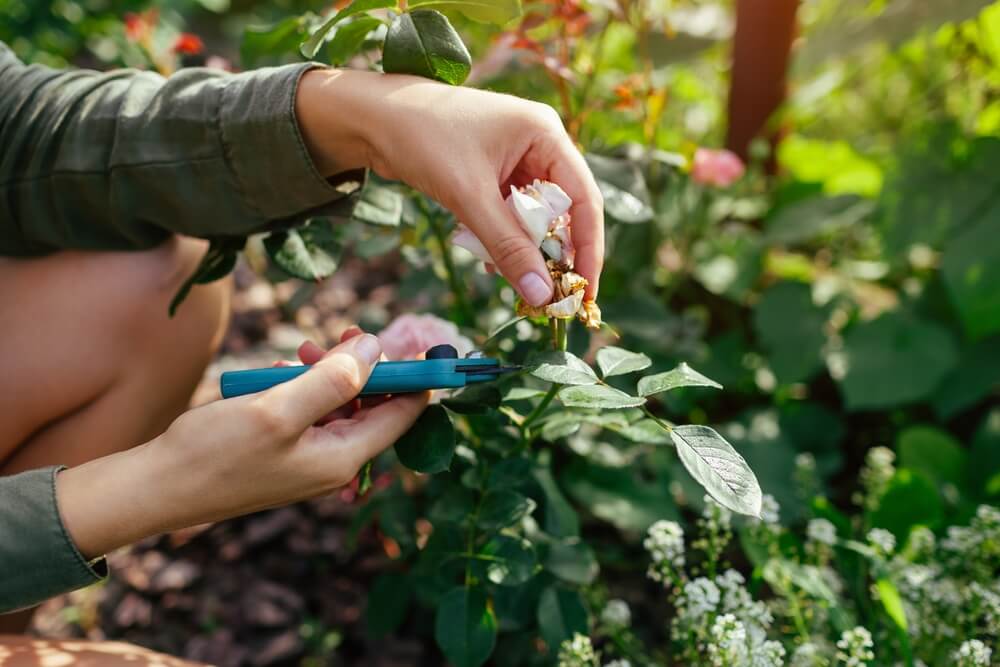
While September does mark the end of summer, it does not mark the end of the sunshine for the year. For this reason, it is hugely important to not give up on the flowers that you have been growing and nurturing over the summer months. They still have plenty of life left in them.
It is hugely important to keep on top of the deadheading of old, discoloured flowers and allow for new growth and more light to get to smaller plants. Cutting off these dead flower heads will also allow more of the plant’s energy to go into the flowering and growth of new flowers.
In addition to this, these old and discoloured flowers can be an eye saw in a garden that you have worked tirelessly to perfect. They can also be susceptible to fungal diseases which can be catastrophic to your garden. Deadheading them will not only take away the uglier dying flowers but will allow for the growth of newer, more beautiful flowers.
3 – Start Planting Spring Bulbs
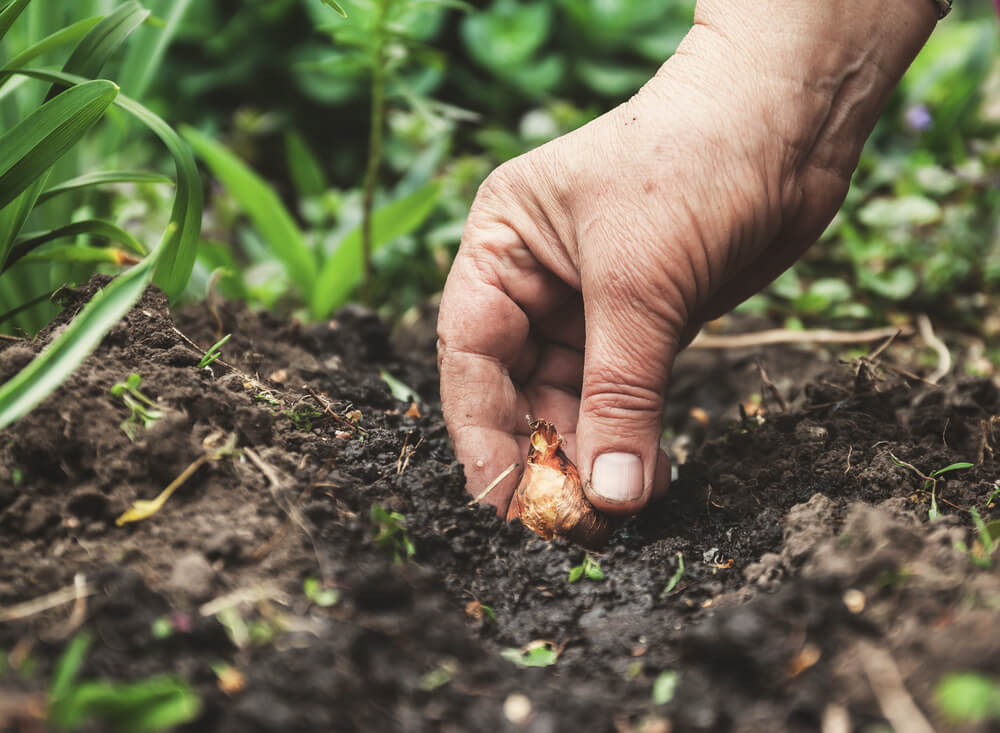
While spring might seem a million miles away, now is the perfect time to begin planting the bulbs that you want blooming in the spring months. When planting bulbs, planning is necessary, this is why they need to be planted in September or October to be ready for peak bloom when you begin to use your garden again next spring.
Winter can be extremely tough on bulbs and plants that have been recently planted. That is why it is so important to plant them at the end of the summer months or the beginning of the fall months so that they have enough time to get established and used to cooler soil temperatures before the harsh British winter.
4 – Water autumn asters regularly to avoid mildew
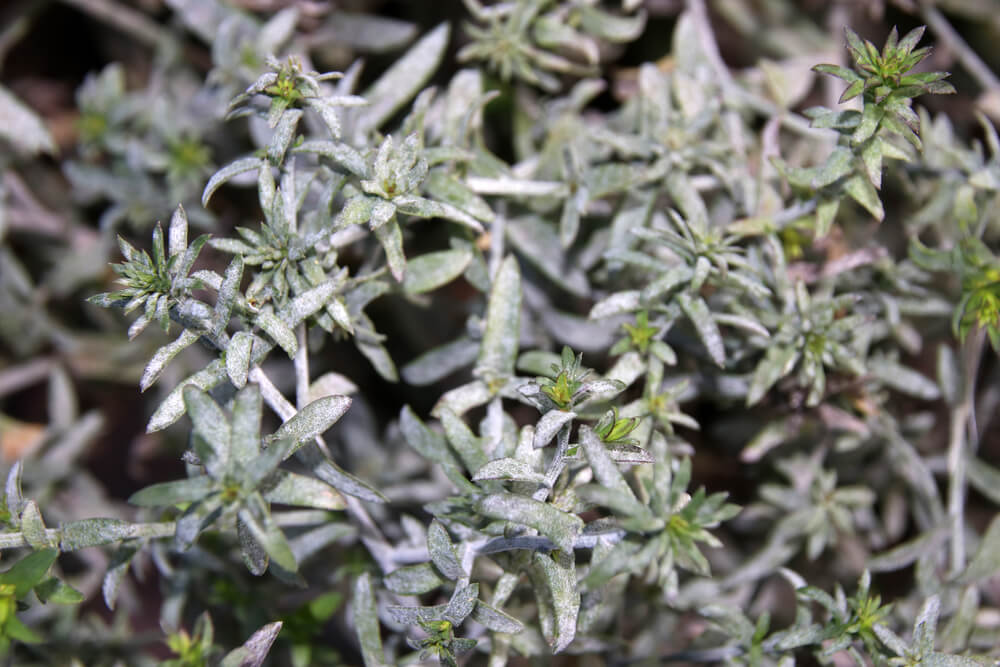
Mildew is a type of fungi that can be extremely dangerous to plants. They are quite commonly found on asters at the end of the summer months. This is why it is extremely important to be on the lookout and try preventative measures to make sure that your asters do not fall victim to mildew.
Mildew that is commonly found on asters is called powdery fungi. This specific fungus attacks a wide range of plants. It can be recognised by the white, dusty coating on leaves and stems on flowers. It is hugely important to get rid of this mildew before it truly harms the plant.
Powdery mildew thrives in dry conditions, for this reason, it is hugely important to keep on top of watering your asters if you are wanting to avoid mildew. However, it is hugely important to not overwater your asters as this can also cause the growth of powdery mildew.
5 – Collect ripe seeds from flowers and store them for spring sowing
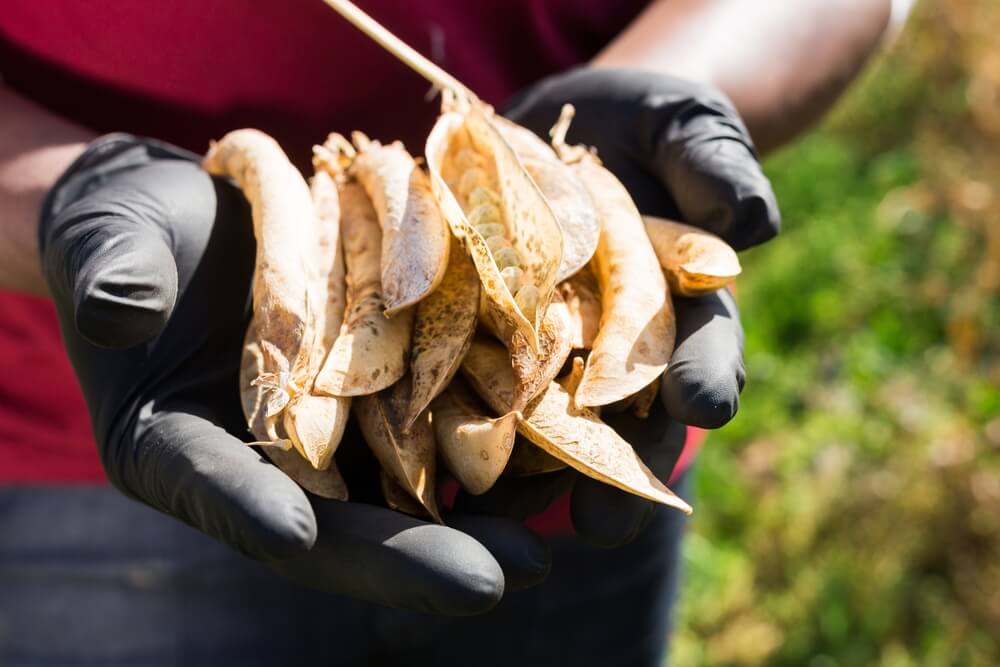
As the spring/summer seasons are coming to an end and flowers are beginning to fade, seed pods will be perfectly ripe for picking. It is hugely important to collect these seeds and store them safely so that they can then be planted in the following spring months for a beautiful summer bloom.
Seed harvesting is a very popular job to be done as the summer draws to a close and the season comes to an end so to speak. You can often tell that seed pods are ready, ripe and ready for harvesting if they are either white or brown in colour. Ripe seeds are commonly extremely easy to get out of seed pods and are commonly yellow, brown and black.
6 – Check roses for fungal diseases
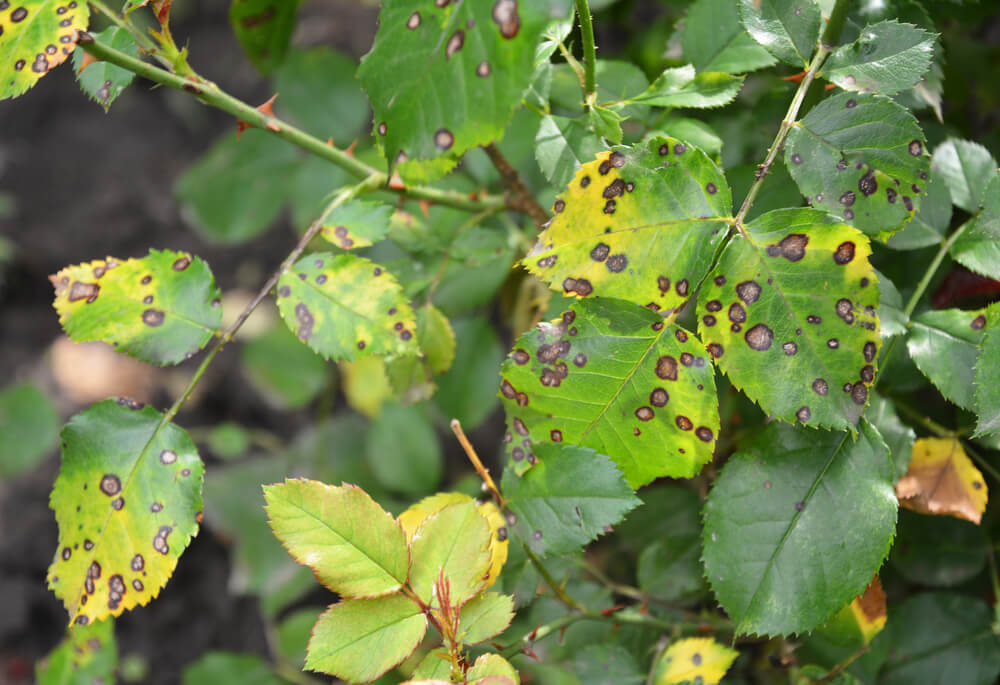
Fungal diseases to plants can be extremely dangerous and can spread rapidly if not found and dealt with immediately. Roses in particular can be very susceptible to blackspots. This can completely defoliate a rose bush and can cause the branches or even the whole structure of the plant to weaken.
It is hugely important to pick off any affected roses and bin them. This is because if you do not bin them and they, therefore, sit on the soil or near other plants the fungal disease can spread around the plants and cause a huge problem. If they are not stopped then the blackspots can move not only roses but also throughout your whole garden.
Rake fallen leaves
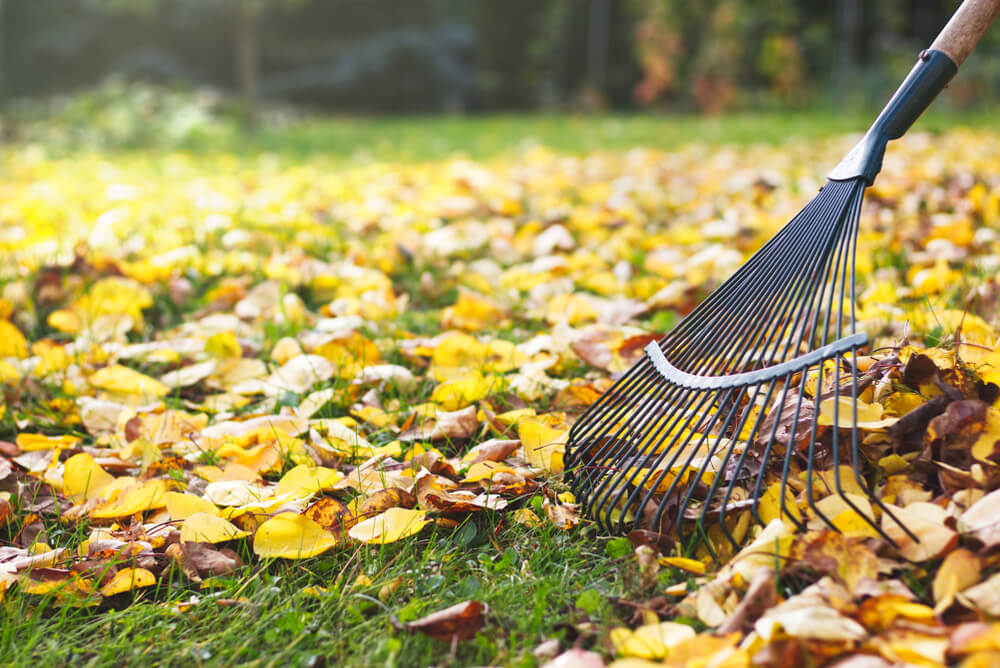
The end of September is the beginning of fall (Autumn), and what happens in fall? The leaves start to fall. You need to keep on top of raking leaves and keeping on top of the tidiness of your garden.
This is because the multitude of leaves that have fallen from trees onto the grass and plants can block sunlight from the plants that are needed for them to grow and stay healthy. These leaves can also cause yellow spots on plants and lawns and can also be a place that harbours diseases and pests.
8 – Plant autumn berries
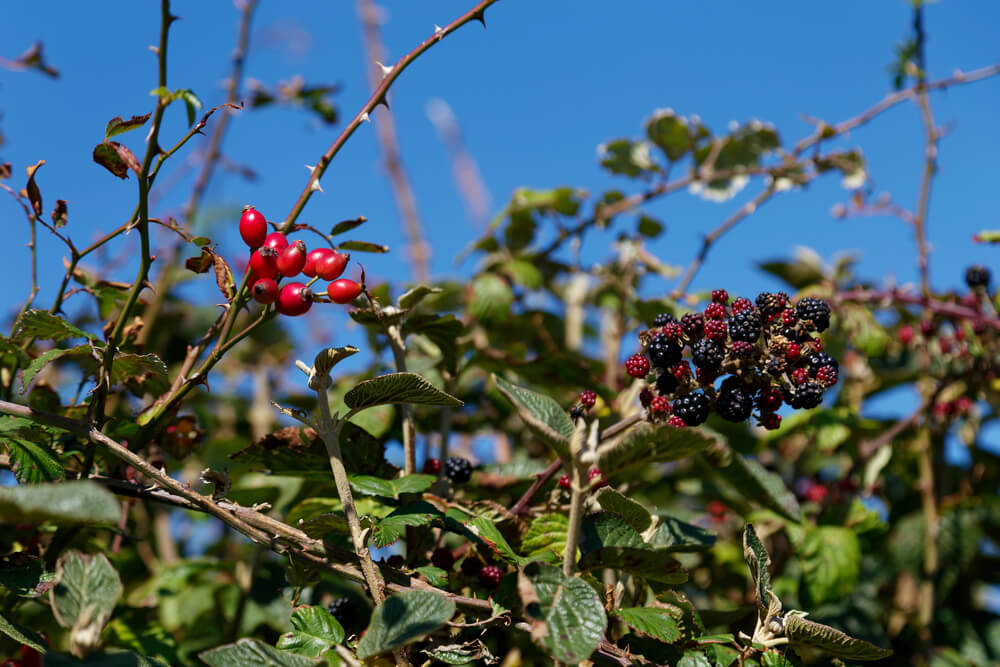
Adding autumn fruits to your garden is an amazing way to keep a beautiful array of colours in your outside areas even when the spring-summer flowers start to fade. Colour is such an important part of a garden as it helps to bring positive vibrancy to your property.
The berries that you should be looking to plant in the autumn months are raspberries, blackberries, and redcurrants. Autumn is such a good time to plant the berries as the soil is still relatively warm from the summer months, but the outside temperatures are cool enough not to put any extra stress on the plants.
9 – Look out for early frosts to put plants under cover
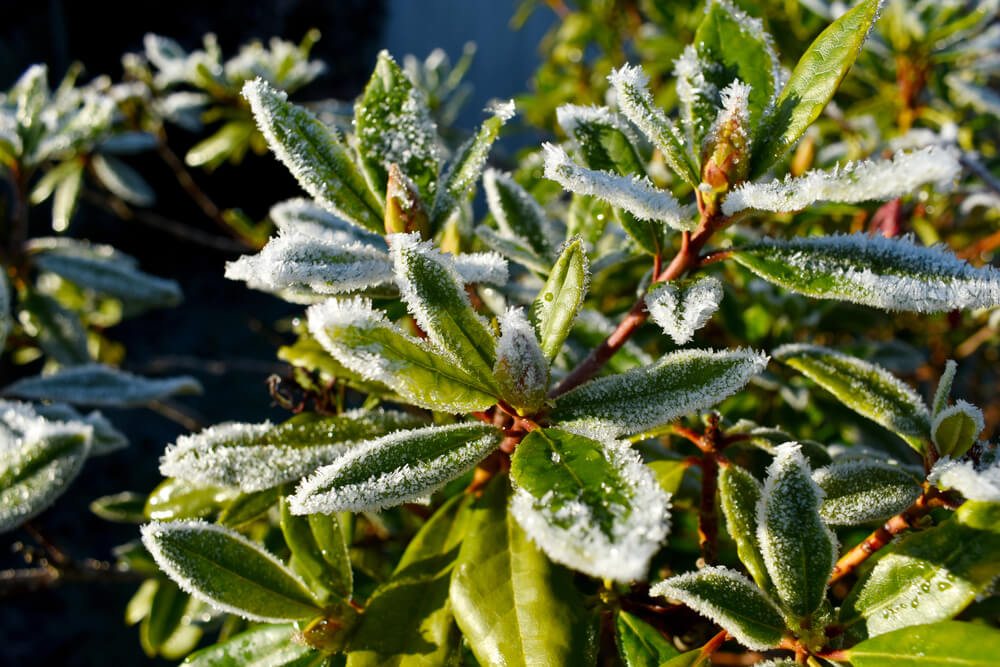
As crazy as it seems, it is not that uncommon for early frosts to start as early as September. This is why you should always be ready to protect your plants if frosts are forecasted throughout the week. You can do this by getting a plant cover which will stop frosts from affecting the plant.
Frosts can be extremely dangerous to plants as the water inside the plant expands once frozen. If this water expands then it could potentially break the cell wall and therefore meaning that the plant can no longer carry any sap which would result in the death of the plant.
10 – Clear out borders and pots
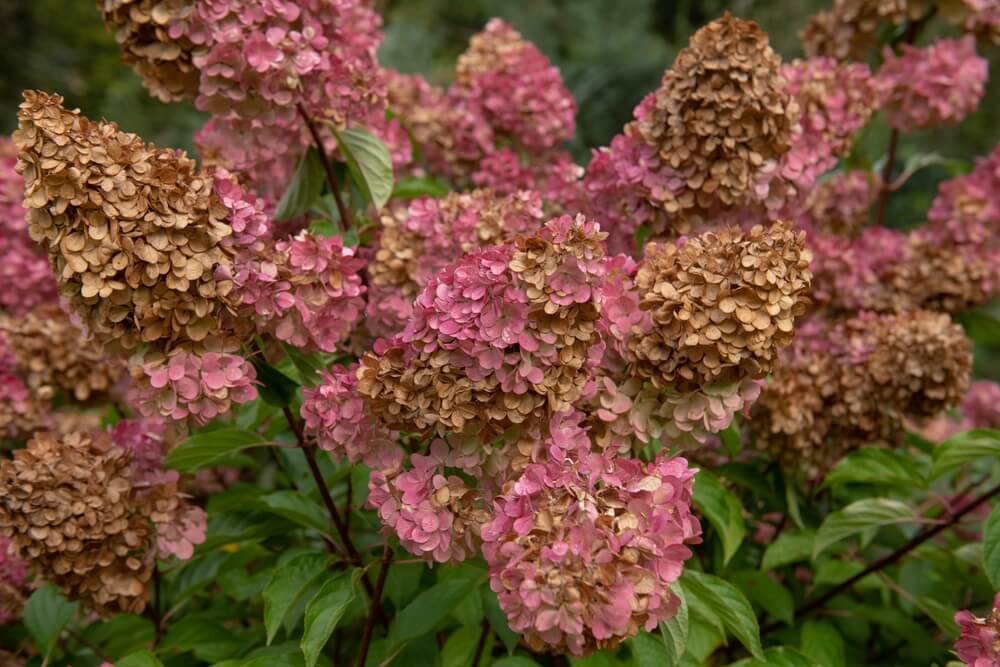
Unfortunately, at the end of the summer months, it is extremely common to have borders which are full of plants that are dead or that are dying rapidly due to the changing of seasons. It is hugely important not only for the look of your garden but for the health of the plants to keep on top of the clear out of your borders.
Dead plants that are left can end up beginning to decay and can therefore be a breeding ground for diseases and fungi that can be extremely dangerous to the plants that are still flowering. In addition to this, cluttered borders full of dead plants will block out the sunlight for the healthy plants that still can grow. By getting rid of the old plants you are giving the newer plants a better chance of surviving.









Recent Comments